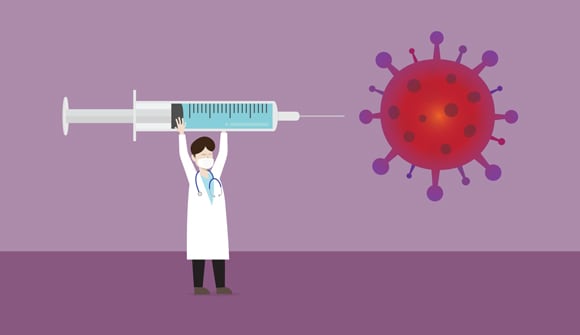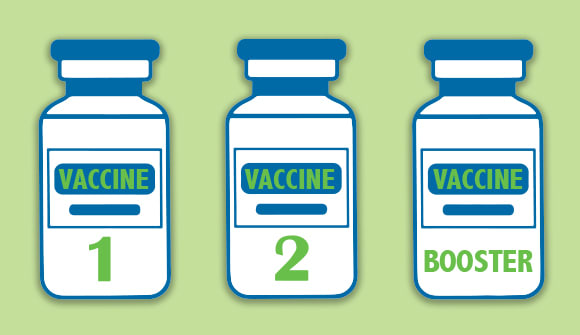Super shots
These COVID-fighting vaccines are unlike any other.
Article Date:

It’s a vaccination evolution revolution, a new type of vaccine that could change the fight against COVID-19 and other infectious diseases forever.
Pharmaceutical companies Pfizer and Moderna recently made headlines after submitting COVID-19 vaccines for Emergency Use Authorization (EUA). These super shots have something in common: if approved, they will be the first vaccines to use mRNA genetic material from a virus ever released to the public.
That’s right, viruses have genes, too.
What is mRNA?
According to Baptist Health Executive Vice President and Chief Physician Executive Elizabeth Ransom, MD, FACS, these vaccines use small pieces of a virus’ genetic code called messenger RNA (mRNA) to trigger an immune response inside the body to protect against infections.
“mRNA is a molecule that tells your body how to build proteins,” Dr. Ransom said. “mRNA vaccines work by delivering mRNA to your cells, ‘tricking’ your body into building proteins that are usually only found on the coronavirus. Your cells recognize these proteins and respond as if they were being attacked by the real virus. This, in turn, builds immunity to COVID-19 because the body is now trained to recognize the virus in the event of an exposure.”
Unlike some traditional vaccines, mRNA vaccines do not contain any virus particles and cannot make you sick with the disease they are meant to protect against, Dr. Ransom said. Both COVID-19 mRNA vaccines appear to be very safe and cause only mild side effects, such as soreness and fever in rare cases.
“These vaccines appear to be remarkably effective — initial reports show around 95% effectiveness for both Pfizer's and Moderna’s mRNA vaccine platforms,” Dr. Ransom said.
Tried and tested
While the spotlight is on COVID-19, mRNA vaccines aren’t entirely new. They have been studied for decades as possible ways to treat cancer and autoimmune diseases. However, a surge in federal funding to support pharmaceutical companies in the race to end the pandemic expedited the development of a COVID-19 vaccine, allowing it to beat others to the finish line.
In theory, mRNA vaccine platforms can be used to treat various conditions. Scientists can code mRNA strands to produce proteins to be used in vaccines to fight the disease of their choosing. However, these shots need to be kept below 0 degrees Celsius during long-term storage to stay effective, challenging efforts to distribute vaccines the world badly needs, such as a potential mRNA COVID-19 vaccine.
Although the long-term effectiveness of these vaccines remains unknown, the first approved mRNA vaccine is on the horizon. By the end of 2020, this large leap for vaccine development could very well kick an immunology revolution into high gear.
At Baptist Health, we want to help keep our community informed about COVID-19. For more information about COVID-19, visit covid19.baptistjax.com.



